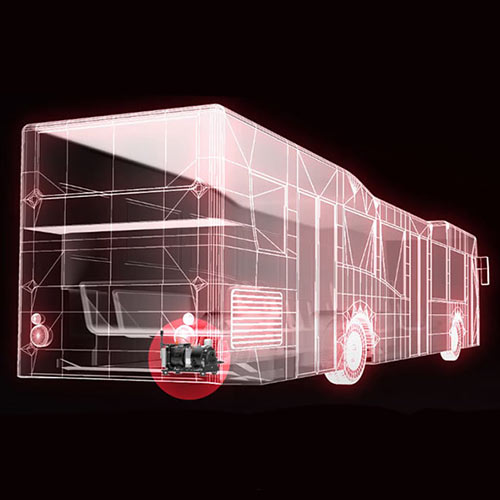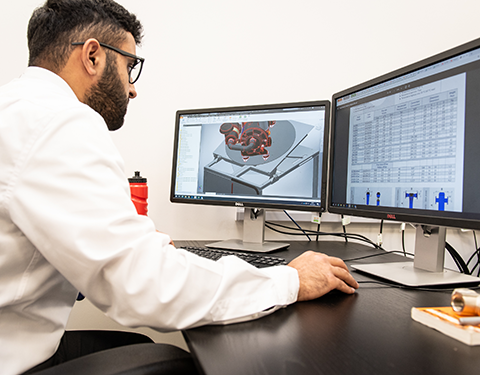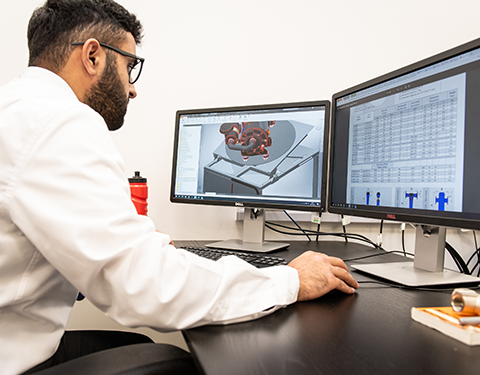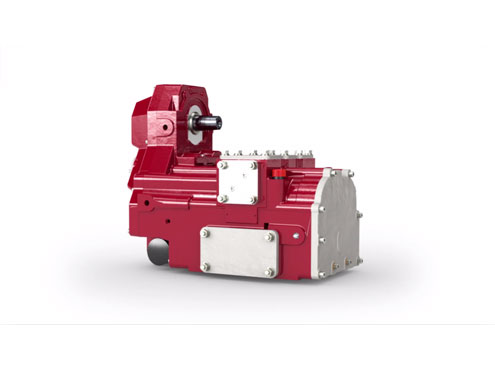W tym momencie zwrócono się do Gardner Denver Transport. ARCC zetknęło się z wcześniejszą współpracą firmy z Wrightbus w 2012 r., w ramach której sprężarki Hydrovane zostały zainstalowane w 1000 nowych autobusów London Routemaster z napędem hybrydowym. Australijska firma chciała dowiedzieć się więcej o projekcie i o tym, jak opracowano ostateczny pakiet do obsługi wszystkich pokładowych funkcji pneumatycznych.
Po wstępnej rozmowie ARCC odwiedziło zakład Gardner Denver w Redditch, aby lepiej zrozumieć, w jaki sposób firma może wspierać wdrażanie własnych pojazdów elektrycznych. David Evans z ARCC spotkał się z zespołem ekspertów ds. e-mobilności Gardner Denver Transport, którzy zarekomendowali TA02 - ten sam model sprężarki, który został zainstalowany z wielkim sukcesem w ramach projektu New Bus for London.
Dion Pearson, kierownik ds. sprzedaży Gardner Denver Transport w Australii, wyjaśnia, jak powstał ten projekt: "Było jasne, że ARCC potrzebuje zaangażowanego partnera, aby osiągnąć swoje cele. Wejście na rynek o ugruntowanej pozycji jest trudne w najlepszych czasach, szczególnie przy wprowadzaniu nowej lub niesprawdzonej technologii, więc firma potrzebowała partnera, który mógłby zapewnić doskonałość i stałe wsparcie"
Prace okazały się takim sukcesem, że ARCC wyznaczyło Gardner Denver do pracy nad najnowszym prototypem autobusu napędzanego paliwem wodorowym. Potrzebując lżejszej, bardziej wytrzymałej sprężarki, Gardner Denver zaoferował nowy pakiet wykorzystujący TX02. Model ten jest idealnie dopasowany do napędów elektrycznych, dzięki prostej integracji, lekkiej konstrukcji i cichej pracy. TX02 jest również wolny od wibracji, co oznacza, że pasażerowie i piesi mają zagwarantowaną komfortową podróż - kluczowy czynnik dla operatorów na tym rynku.
Jak dodaje Pearson, projekt ARCC podkreśla, w jaki sposób Gardner Denver Transport jest w stanie wykorzystać swoją scentralizowaną wiedzę specjalistyczną w Wielkiej Brytanii wraz z lokalnymi centrami usług: "Dobrze wykorzystaliśmy naszą międzynarodową sieć i obecność regionalną tutaj w Australii, aby zapewnić klientowi szybkie i skuteczne rozwiązanie transgraniczne. Nasz zespół koordynował działania z centralą w Wielkiej Brytanii i pomimo różnicy czasu był w stanie utrzymać projekt na czas i w ramach budżetu"
 Poland (PL)
Poland (PL)





